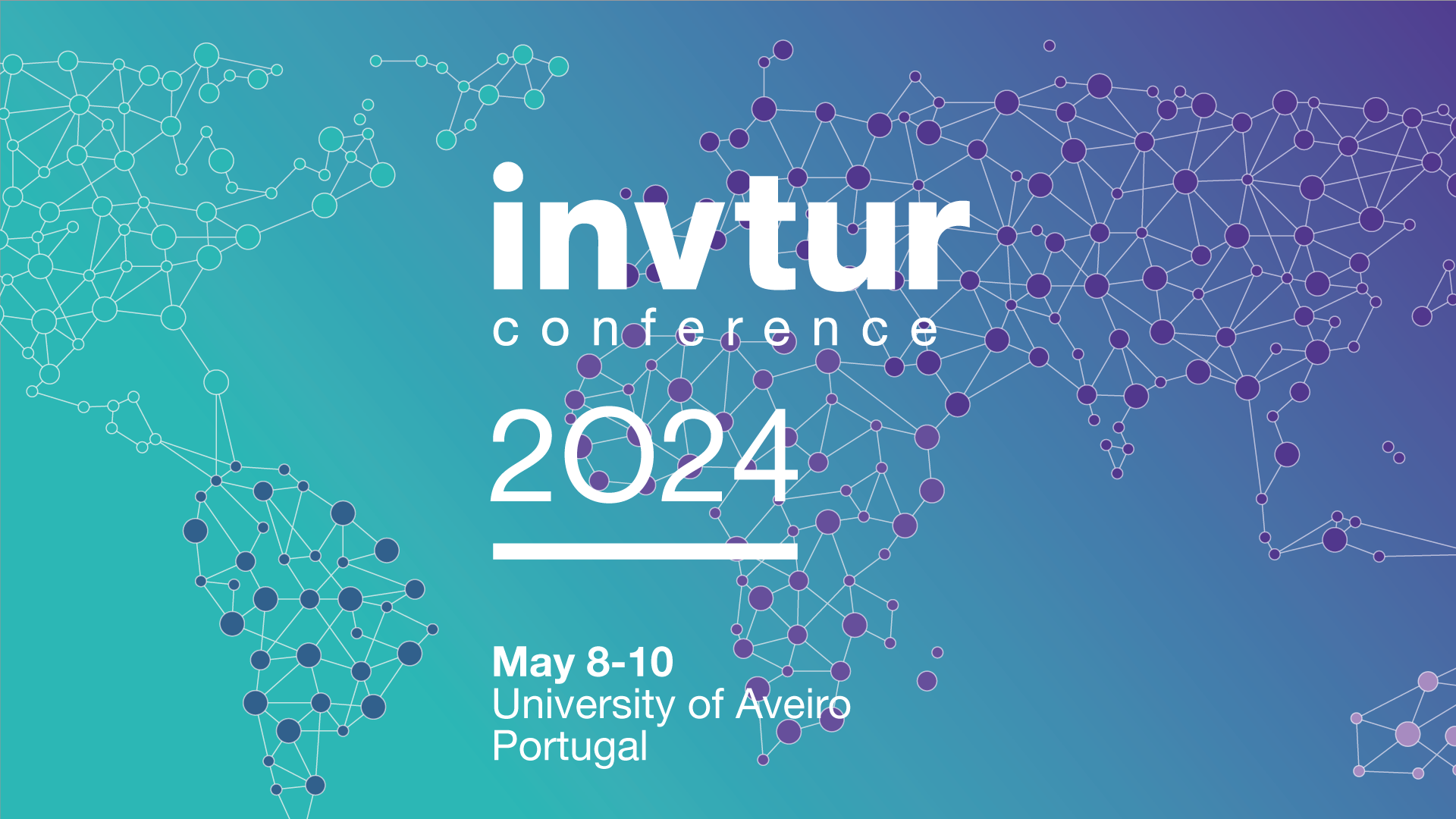
A Conferência Internacional INVTUR é um evento organizado pela Universidade de Aveiro, Portugal, desde 2010 e tornou-se numa das maiores conferências científicas na área do turismo a nível mundial. Ao longo dos anos, ganhou reputação como uma importante plataforma para a partilha de investigação de ponta e de ideias inovadoras na área do turismo.
A INVTUR tem como objetivo apresentar investigação de relevância que contribua para o debate e aponte novas abordagens e paradigmas emergentes no setor do turismo. Também pretende partilhar e aplicar o conhecimento científico na prática que afeta a transformação dos destinos. Todas as edições da INVTUR contam com a participação de palestrantes de renome internacional, os Keynote speakers, que partilham com a audiência conhecimento nas suas principais áreas de investigação. As melhores práticas de turismo são, ainda, apresentadas através de uma série de sessões paralelas e eventos especiais. Paralelamente à conferência, são realizadas discussões envolvendo académicos e representantes do setor empresarial e organizações públicas. No geral, os participantes têm a oportunidade de fortalecer parcerias ou estabelecer novos contactos, incluindo investigadores, profissionais do setor e entidades governamentais, através do diálogo e da partilha de conhecimento para uma melhoria do setor do turismo e da sociedade em geral.
Current Issue
2024
Data sheet
Extended abstract
Full paper
“Tourism in unprecedented times: Looking for new directions”
Tourism has always been a catalyst for peace, change and sustainable development. However, approaches to tourism have changed drastically over the years. As we mark a new era, our world is facing unprecedented challenges. The COVID-19 pandemic, climate change, the emergence of disruptive technologies and increasing digitalisation, the war in Ukraine, the global energy crisis and rampant inflation are profoundly changing the pace of development in the world and drastically impacting the tourism sector. The INVTUR 2024 International Conference aims to reflect on how the world is changing and to advance approaches and techniques to tourism’s dynamic evolution and development. The INVTUR International Conference is an event organised by the University of Aveiro, Portugal, since 2010 and has become one of the world’s largest tourism conferences. Over the years, it has gained a reputation for being a platform for cutting-edge research and innovative ideas in the field of tourism. For the upcoming edition, INVTUR is expected to bring together academics, researchers, policymakers, practitioners and industry professionals from around the world to discuss and share their findings, insights, and experiences in the field of tourism. The INVTUR 2024 International Conference intends to share and apply scientific knowledge into practice that impacts the transformation of destinations. Cutting-edge research and best practices from a diverse range of tourism topics shall be showcased by hosting a number of concurrent meetings, keynote speeches, special sessions and related events. Parallel to the academic conference, discussions shall be held involving academics and people from the business sector and relevant organisations. Overall, participants will have the opportunity to strengthen networking opportunities with various stakeholders, enabling the use of research results in the best interest of the scientific community, the tourism sector and society. By fostering collaboration and knowledge exchange among stakeholders in the tourism industry, INVTUR 2024 International Conference aims to contribute to a more sustainable and equitable future for all.

